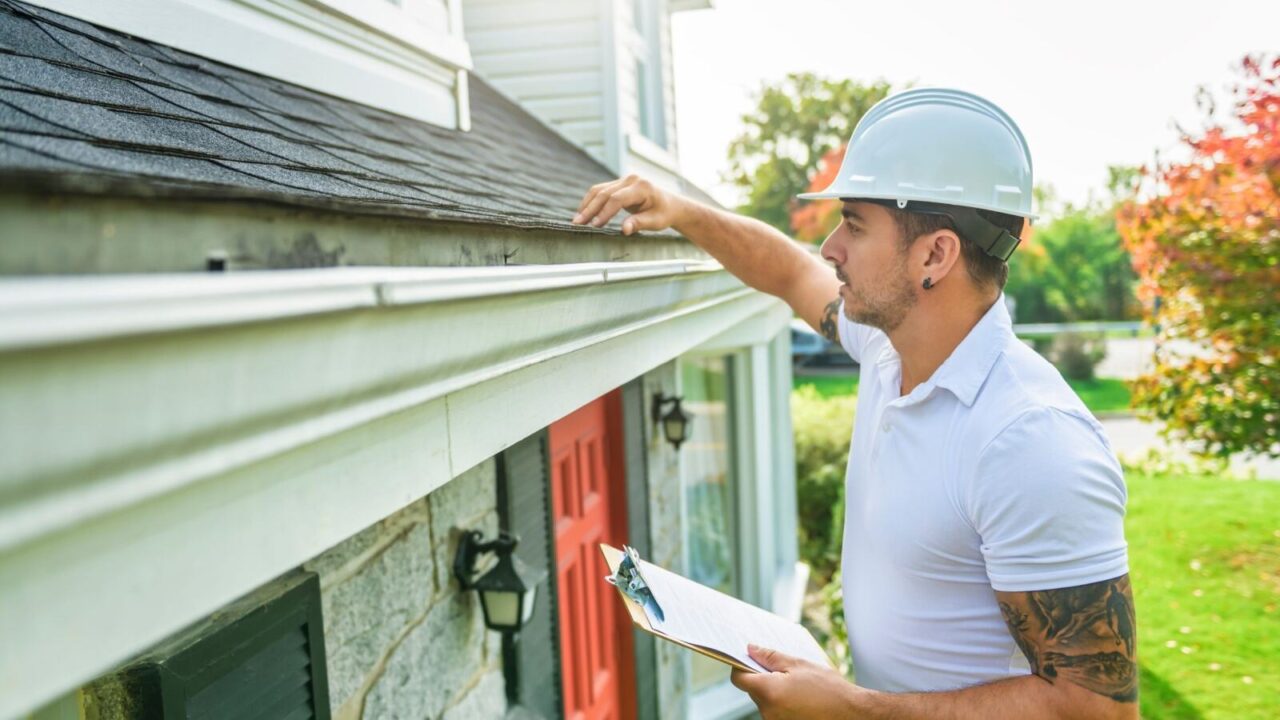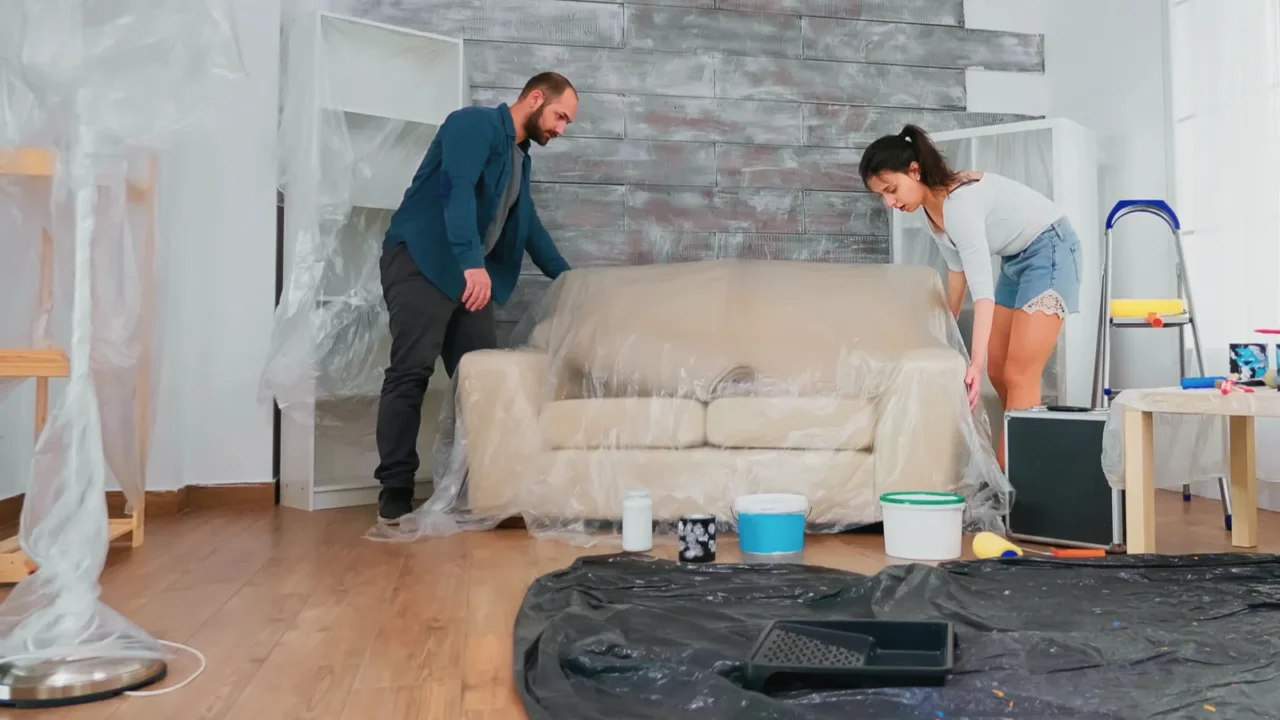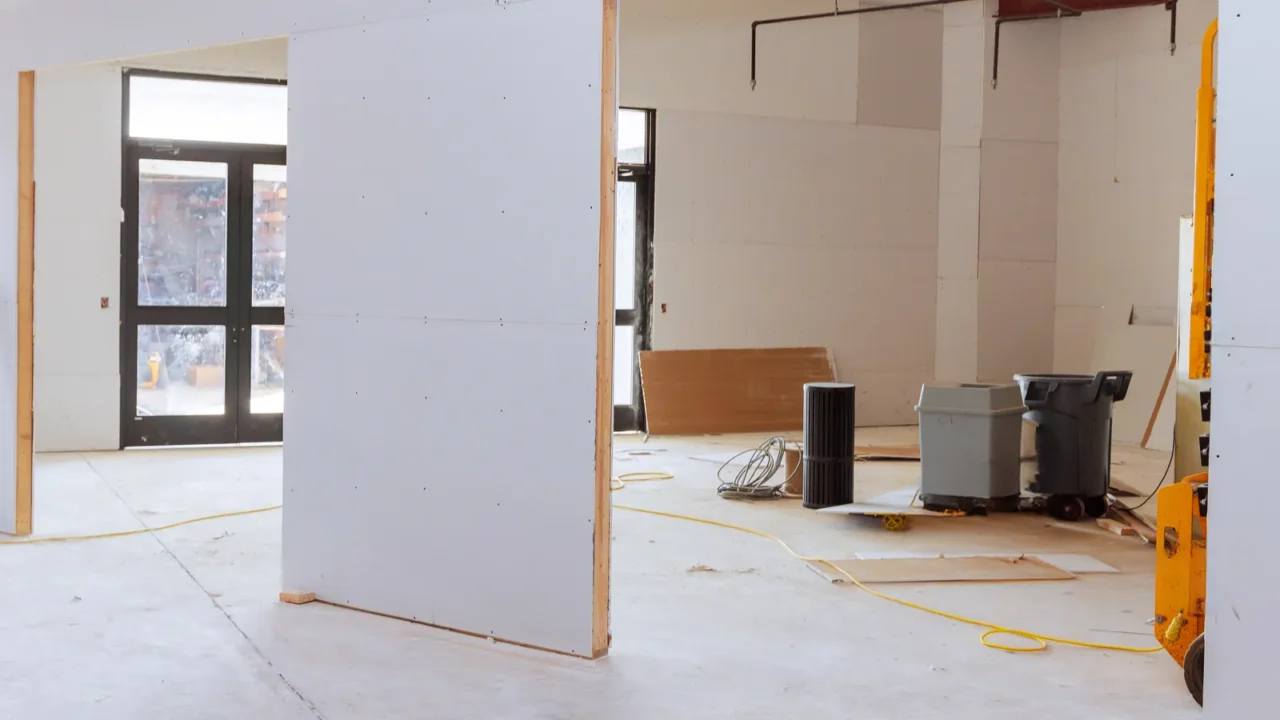
Start Renovation with a Clear Plan
Renovation risks often stem from unclear goals. Avoid this by defining your project’s scope, timeline, and budget.
For example, if you’re redoing a kitchen, decide upfront if you’re just replacing cabinets or doing a full remodel.
Write everything down, even those “maybe” ideas, and discuss them with contractors. When your plan is clear, surprises (and costly detours) become less likely.
Remember, it’s easier to tweak plans on paper than to fix mistakes mid-renovation. Think of your plan as your renovation GPS: without it, you’re navigating blind.

Research Your Contractors
Don’t just hire the first contractor who gives you a quote. Research multiple professionals and check their reviews, portfolios, and licenses.
Ask for references and follow up with previous clients to see if the contractor delivered on time and within budget. Vetting your contractor minimizes the risk of dealing with unreliable workers or subpar results.
Remember, it’s not about finding the cheapest option but the most reliable one.

Budget for the Unexpected
Home renovations rarely go exactly as planned. Always set aside 10–20% of your budget for surprises like hidden water damage or rewiring issues.
For instance, while upgrading an old bathroom, you might uncover plumbing that’s decades overdue for replacement. By having a contingency fund, you won’t feel blindsided or forced to cut corners.
Think of this extra cushion as your safety net.

Understand Local Regulations
Skipping permits can lead to fines, delays, or having to redo work.
Research what permits your project requires and ensure your contractor handles the paperwork. For example, replacing a fence might seem simple, but many areas have strict height and placement rules.
Ignoring regulations can be costly. Check local building codes and, when in doubt, consult your city or town’s planning office.

Prioritize Safety Measures
Renovation zones can be hazardous, especially if kids or pets are involved. Block off work areas with gates or tarps and ensure tools are stored safely.
Communicate with your contractor about safety protocols, such as wearing protective gear or ventilating spaces with strong fumes.
Don’t let safety take a backseat, plan ahead to prevent accidents.

Test for Hazards in Older Homes
If your home predates the 1980s, it might contain asbestos, lead paint, or other hazards.
Before starting demolition, hire a professional to test for these materials. For instance, sanding lead-based paint can release toxic dust into the air.
A certified expert can safely handle removal, ensuring your family’s health isn’t compromised. While it’s tempting to DIY, some risks simply aren’t worth taking.

Communicate Openly and Frequently
Lack of communication is a recipe for disaster.
Regularly check in with your contractor and ensure everyone is on the same page. Use text, calls, or project management apps to stay updated on timelines and challenges.
For instance, a homeowner might assume a contractor knows they want energy-efficient windows, only to find standard ones installed.
Clear communication avoids misunderstandings, saving you time, money, and headaches.

Protect Your Belongings
Renovations generate dust, debris, and potential damage to your possessions. Cover furniture with plastic sheets, move valuables to a secure area, and seal off vents to prevent dust from spreading.
If you skip this step, you will end up finding the living room carpet ruined by spilled paint or dust. Don’t take that chance, properly prepare your space before the work begins.

Plan Around Your Schedule
Renovations disrupt daily routines. If you’re redoing a kitchen, consider setting up a temporary cooking station.
For bathroom remodels, coordinate with family members to minimize inconvenience. Poor timing can add unnecessary stress, so plan renovations when you’re less likely to need the space or can stay elsewhere.
Proactive planning keeps life manageable during the chaos.

Read Contracts Carefully
Before signing anything, read all contracts thoroughly. Ensure the document specifies project timelines, materials, and costs. Imagine you ignored the fine print, only to discover “extra” fees for items you assumed were included.
Avoid this by clarifying details and asking questions before work starts. A solid contract is your safeguard against unexpected charges or disputes.

Don’t Rush the Timeline
It’s tempting to push for a fast turnaround, but rushing can lead to mistakes and compromises in quality. For example, skipping proper drying time for paint or grout can cause long-term issues like peeling or cracking.
Ask your contractor for realistic time estimates and avoid pressuring them to cut corners. Patience ensures better results, and remember: quality work takes time.
A renovation done right is worth the wait, even if it takes a little longer than planned.

Check Insurance Coverage
Renovations can lead to accidents or damage, so check both your homeowner’s insurance and your contractor’s coverage. Ensure the contractor has liability and worker’s compensation insurance to protect you if something goes wrong on-site.
Let say if your roof repair led to water damage during a surprise storm, the insurance will cover the repairs because you had reviewed the policy.
Also, don’t assume you’re covered, verify before starting the project.

Stick to Your Budget
It’s easy to fall into the “while we’re at it” trap, adding more upgrades as the project progresses. While tempting, these extras can quickly balloon costs.
Swapping standard fixtures for luxury ones might double your budget. Stick to your original plan unless absolutely necessary.
Use a spreadsheet to track expenses and avoid impulsive decisions that strain your finances. Staying disciplined keeps your renovation affordable and stress-free.

Inspect Materials Before Installation
Never assume that the delivered materials are perfect. Inspect tiles, countertops, and appliances upon arrival to spot defects or incorrect items. Skipping this step can lead to costly replacements.
Checking materials upfront avoids delays and ensures your vision is executed as planned. If something’s wrong, report it immediately to arrange replacements.

Manage Noise and Neighbors
Renovations often come with loud tools and disruption. Let your neighbors know about the timeline and noisy periods to avoid complaints.
Managing noise also includes respecting local rules about work hours. Communication and courtesy go a long way in keeping the peace during your renovation.

Avoid Overlooking Bathroom-Specific Risks
Bathroom renovations come with unique challenges that can lead to costly mistakes if not addressed.
Water damage is a major concern, so ensure proper waterproofing for floors, walls, and fixtures. Use moisture-resistant materials and check for leaks during installation.
Electrical safety is equally important; avoid placing outlets or light switches near water sources.
Read “Tips for Disaster-Free Bathroom Renovation” to create a bathroom that’s both functional and durable.

Be Present During Key Milestones
Even if you trust your contractor, being available for major project milestones can prevent mistakes. For example, attend inspections for framing, electrical work, or final finishes.
Before declaring your renovation complete, test systems like plumbing, electrical outlets, and heating or cooling units.
Your involvement ensures the project stays on track and meets your expectations. Don’t hesitate to ask questions, it’s your home, after all.
Once the dust settles and your renovation is complete, celebrate your revamped space. To ensure everything goes smoothly, team up with contractors and designers for a risk-free renovation.
Read Next: